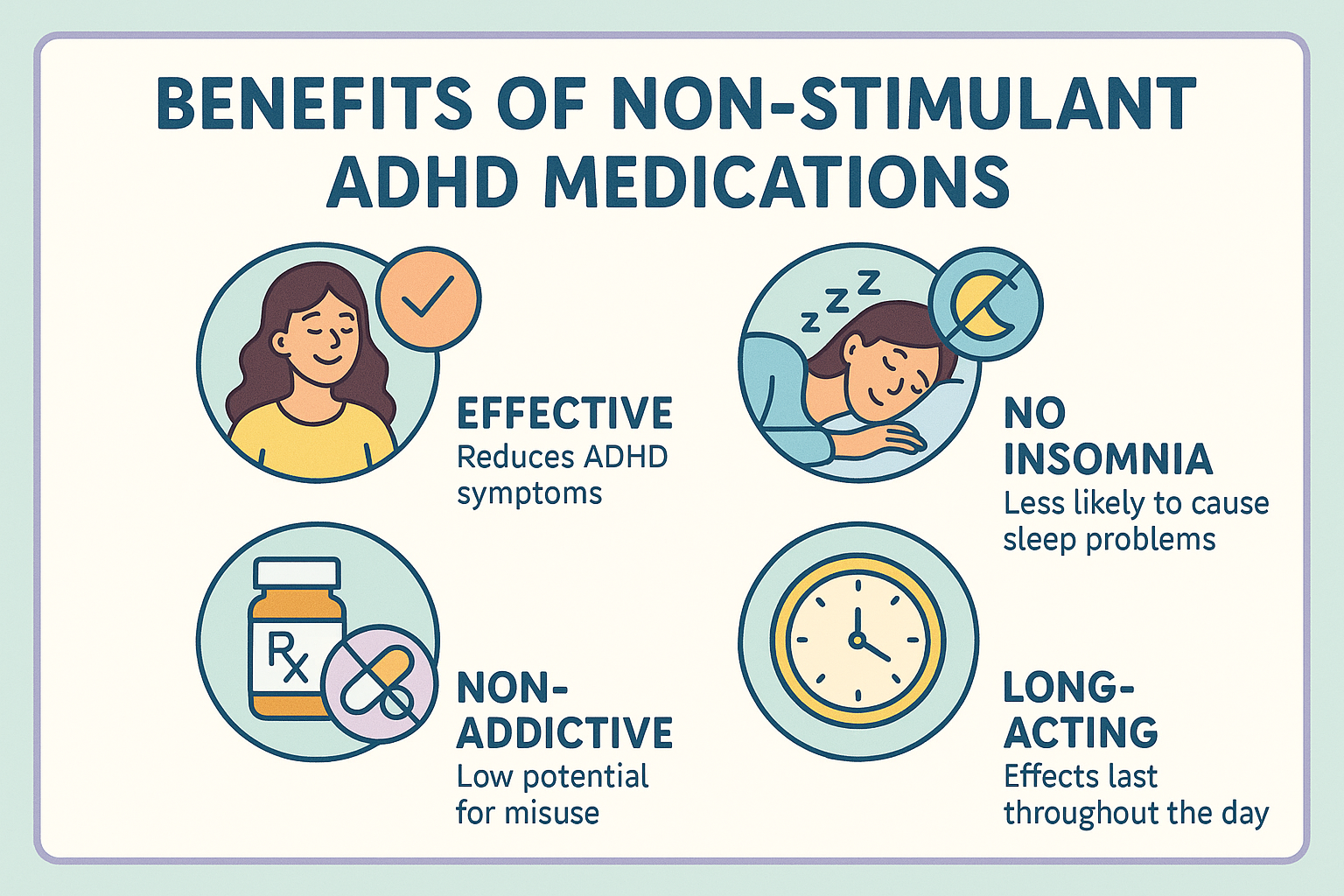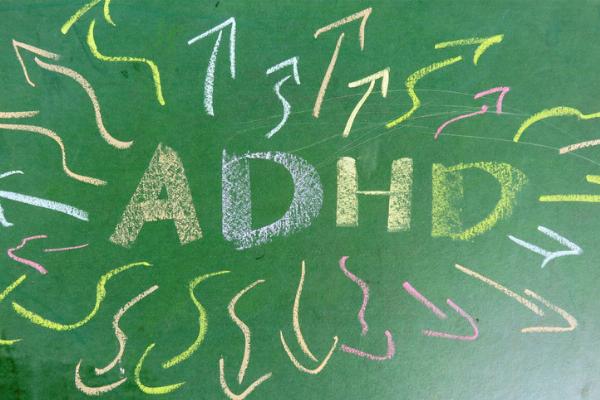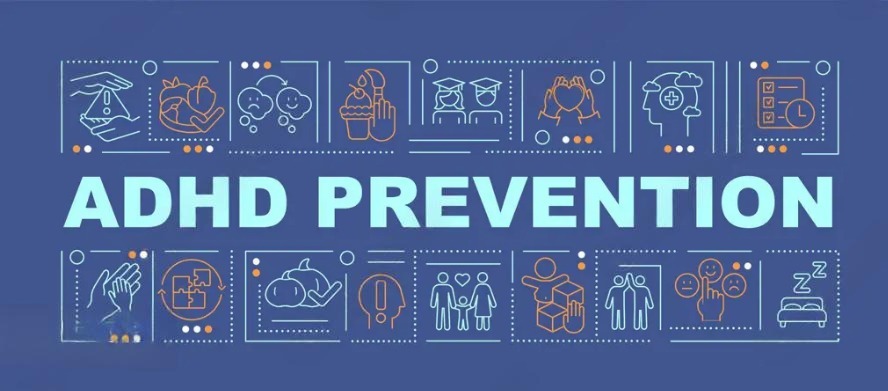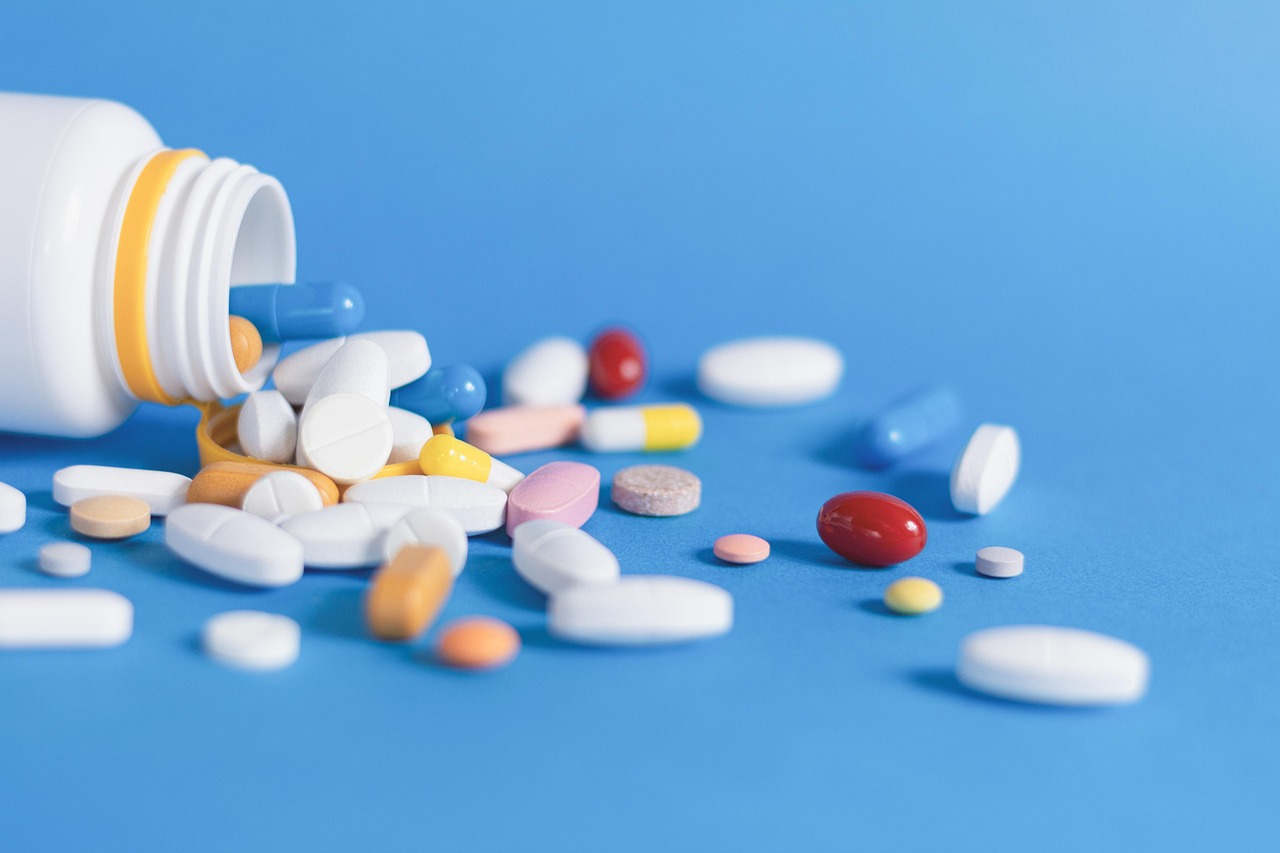What Are the Benefits of Non-Stimulant ADHD Medications?

When I was first diagnosed with ADHD, I assumed medication would be a straightforward process get a prescription, take a pill, feel better. But if you’ve ever been in this position, you know it’s rarely that simple. The reality is, ADHD treatment is incredibly personal, and for many people, stimulant medications like Adderall or Ritalin don’t feel like the right fit.
✍️ Curious if mindfulness and meditation help ADHD? Explore our full article on ADHD management to see how alternative therapies fit alongside medical treatment.
That’s where non-stimulant medications come in. While they might not get as much attention as their stimulant counterparts, they offer real, meaningful benefits especially for individuals who are sensitive to stimulants, have certain health conditions, or want to avoid the risk of misuse.
If you’ve ever wondered whether non-stimulants might be right for you, you’re not alone and you’re asking a smart question.
Non-Stimulants: A Different Approach to ADHD Treatment
Most people are familiar with stimulants because they’ve been around longer and are often the first medications prescribed for ADHD. They work by boosting dopamine and norepinephrine in the brain to improve focus and attention.
Non-stimulant medications, on the other hand, primarily target norepinephrine and take a more gradual approach. Strattera (atomoxetine) is one of the most well-known non-stimulant options and is FDA-approved for both children and adults with ADHD.
Unlike stimulants, which can kick in within 30 to 60 minutes, non-stimulants usually take a few days to weeks to reach their full effect. But for many, that slower build comes with a more stable, manageable experience.
Fewer Side Effects (For Some)
Let’s talk about side effects. When I first tried a stimulant, I felt like my brain was finally clicking but I also couldn’t sleep, I lost my appetite, and I felt anxious for no clear reason. It was a tough trade-off.
Non-stimulants tend to have a different side effect profile. They may cause some drowsiness, dry mouth, or stomach upset early on, but they generally don’t cause the jittery highs and lows that some people experience with stimulants. If you’re someone who’s particularly sensitive to medications or if you’ve struggled with stimulant side effects non-stimulants might offer a gentler alternative.
No Risk of Misuse or Dependence
One of the biggest advantages of non-stimulants is peace of mind. Unlike stimulants, non-stimulants are not classified as controlled substances. That means there’s a significantly lower risk of misuse or addiction.
This is especially important for people with a history of substance use disorder, or for parents who feel uneasy about giving their child a stimulant. If this sounds like you, comparing Adderall vs Strattera can provide some clarity on how each works and what kind of experience you might expect.
Longer-Lasting, Steady Relief
While stimulants often wear off within a few hours leading to what’s known as a “crash” non-stimulants usually provide a more consistent effect throughout the day. This can be a game changer, especially for people who want round-the-clock symptom management without the ups and downs.
I’ve heard from people who describe it like this: you don’t necessarily feel “amped up” or dramatically different on a non-stimulant. You just find that you’re able to follow through on tasks, stay organized, and keep your emotions in check with less mental friction.
A Good Option for Coexisting Conditions
ADHD often shows up alongside other conditions like anxiety, depression, or tic disorders. For individuals with these overlapping diagnoses, stimulants can sometimes make symptoms worse. Non-stimulants may be a better fit because they work more gradually and don’t overstimulate the nervous system.
In fact, according to the National Institute of Mental Health, non-stimulant medications are a helpful alternative when stimulants aren’t effective or cause undesirable side effects. That flexibility makes them a valuable part of any ADHD treatment toolbox.
Medication Is a Tool Not a Cure-All
It’s important to remember that medication alone won’t solve everything. ADHD is a lifelong condition that often requires a combination of approaches structure, therapy, self-awareness, and yes, sometimes medication.
As Dr. William Dodson, a psychiatrist specializing in ADHD, says: “Medication is the single most effective treatment for ADHD. But it works best when it's part of a broader strategy.” Non-stimulants may not offer the instant focus boost some people get from stimulants, but they can support lasting behavioral changes over time.
Final Thoughts
Non-stimulant ADHD medications aren’t for everyone, but they’re absolutely worth considering especially if stimulants haven’t worked well for you or simply don’t align with your needs. They offer a steady, sustainable approach with fewer concerns about side effects or misuse.
If you're navigating your own ADHD treatment journey and exploring what might work best, take the time to learn about your options. It’s not about finding the "perfect" solutio it's about finding the right one for you.
Note: IndiBlogHub features both user-submitted and editorial content. We do not verify third-party contributions. Read our Disclaimer and Privacy Policyfor details.







